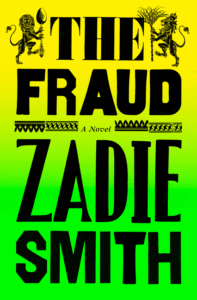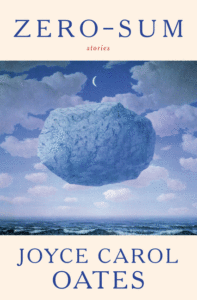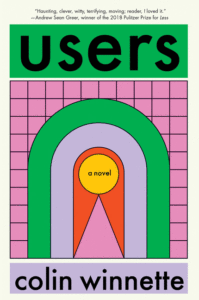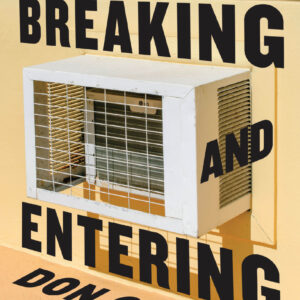5 Book Reviews You Need to Read This Week
"For all of us who lack superpowers, storytelling may be the surest way to grasp the elastic dimensions of life"
Our quintet of quality reviews this week includes Alexandra Harris on Zadie Smith’s The Fraud, Clare Sestanovich on Hilary Leichter’s Terrace Story, Alison Kelly on Joyce Carol Oates’ Zero-Sum, Lily Meyer on Colin Winnette’s Users, and Katy Waldman on Paul Murray’s The Bee Sting.
Brought to you by Book Marks, Lit Hub’s “Rotten Tomatoes for books.”
*
“Partly about an enslaved man on a Jamaican sugar plantation, and it’s a comedy: those two things at once. Few would dare; fewer could pull it off as Smith does here, mixing narrative delight with a vein of rapid, skimming satire as she sketches scenes of life in 19th-century England and the Caribbean … A complicated mosaic of episodes from interleaved plots … In all her novels, Smith refuses single trajectories and central heroes. Here, in glimpses and panoramas, she finds the meshing fibres of the world that link Bogle with the eminent Victorian novelist writing romances, with the Stepney woman cheering an impostor in a courtroom, and with Eliza … A curious combination of gloriously light, deft writing and strenuous construction. There’s a risk of readerly bafflement as bright shards of narrative are shaken into unpredictable combinations across time and place. But the novel’s hybridity becomes part of its fascination. It slows and expands lavishly in honor of its Victorian subjects, yet its chapters are elliptical half-scenes chosen with modernist economy.”
–Alexandra Harris on Zadie Smith’s The Fraud (The Guardian)
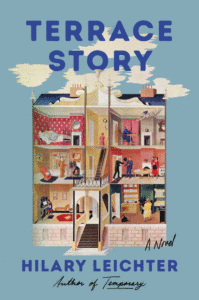
“A capacious container for our space-related concerns … Part of the pleasure of reading Terrace Story is figuring out how its peculiar architecture works … There’s both something old-fashioned about these flicks of the magic-realist wand—a touch of Kafka, a dusting of García Márquez, even a spoonful of Mary Poppins—and something distinctly of our moment … Leichter is interested in the bewitched space of narrative itself. The fable, with tidy generic conventions but stretchy moral lessons, performs a kind of magic on the novel, giving a slim work legend-like scope … Readers of Leichter’s first novel, Temporary (2020), will not be surprised to find themselves in enchanted apartments, or even in the multiverse. Her début, a fantastical sendup of the gig economy, features pirates and career criminals, a witch and a ghost, several precocious and parentless children, and a lot of puns. By comparison, Terrace Story has a subtler, sadder touch; marriage and family life take center stage. This may sound disappointing, as if your once wild friend had settled down, had a kid, and started serving hors d’œuvres. But convention turns out to be a perilously slippery slope, where the friction between fantasy and reality generates heat … Leichter doesn’t moralize about her craft, but her book ventures a compelling case for it. For all of us who lack superpowers, storytelling may be the surest way to grasp the elastic dimensions of life.”
–Clare Sestanovich on Hilary Leichter’s Terrace Story (The New Yorker)
“‘In game theory, a zero-sum game is one in which there is a winner and there is a loser and the spoils go to the winner and nothing to the loser,’ observes the narrator of the title story of Joyce Carol Oates’s brilliant new collection. Ideal love would be the opposite of this, a non-zero-sum game involving the exchange of equal affection to the benefit of both, or all. In practice, these stories suggest, this is seldom true: human beings are predisposed for competition, exploitation and destruction, for profiting at others’ expense. Whether in love, professional life, family contexts or our relationships with other species and the environment, all our activities are zero-sum games … A self-described formalist, inveterately inventive and experimental, Oates presses the zero-sum principle to extremes in a volume bringing together philosophical narratives, psychological studies, science fiction, dystopia, horror, dark comedy and suspenseful mystery. No single genre satisfies her creative energies and restless imagination, with the result that reading these tales is a startling and disturbing adventure. Having finished one variation on the theme, the reader never knows what form the next will take … There are several stories concerning motherhood, each approached from a sharply different angle, from suicidal anguish in the aftermath of miscarriage…to postnatal depression and maternal anxiety…to the attempted disposal of an unwanted four-year-old in a yard sale…No subject matter or narrative stance appears to be off limits … Humanity, Joyce Carol Oates suggests, could one day all too plausibly face the ultimate zero-sum game.”
–Alison Kelly on Joyce Carol Oates’ Zero-Sum (Times Literary Supplement)
“Users seems, initially, like a run-of-the-mill tech satire. It is set in an unnamed wealthy suburb populated by tech workers that it is difficult not to see as Silicon Valley, and Winnette writes in the cool, wry tone that often signals clear mockery. Miles’s work trajectory, which takes him from creating concepts for online games to masterminding a brand-new virtual-reality pod called the Egg, is well suited to satire: The Egg is precisely the sort of flashy futuristic object that venture capitalists might invest in. But Users isn’t making fun of Miles for inventing it—or making fun of him at all. On its surface, the book seems dry and measured, but at its core, it is a shaky, doubtful, unsettling little book. Users asks its readers to wonder what lurks in the depths of any given person’s mind—or, more alarming, what technology and the Internet may have inserted there—and whether those depths are, perhaps, shallower than they used to be … Users is not only anxious about the Internet’s capacity to change our desires. It also worries over the question—which Winnette leaves intentionally dangling—of whether a horrible fantasy was in fact lurking in Miles’s mind all along … It is not a satisfying ending—nor should it be. Among the novel’s strengths is Winnette’s ability to capture the dissatisfaction that life online generates. While other novelists have focused on the addictive, sickening effects of endless scrolling, Winnette highlights the opposite: the slow numbing of the imagination that comes from hooking it up to machines.”
–Lily Meyer on Colin Winnette’s Users (The Nation)
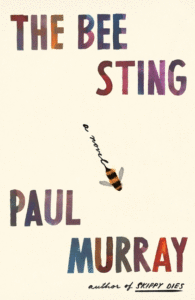
“The novel is about things coming back different, coming back weird. Its more than six hundred pages explore the eeriness of transformative change, and they are packed with literal and symbolic deaths. The first lines dispatch a handful of incidental characters … Murray handles his protagonists with comparable ruthlessness, introducing them only to rip their identities and projected futures out from under them…Some of their metamorphoses are comic…and some are tragic…but what binds them together is a neck-prickling sense of defamiliarization. As with his celebrated second novel, Skippy Dies, Murray intertwines registers from the lyre-strumming to the fart-ripping … Although Murray’s swivelling P.O.V. framework evokes family novels by Jonathan Franzen and Maile Meloy, the best comparison may be to William Faulkner, whose experimental language helped differentiate between the voices of the Compson siblings in The Sound and the Fury, and who also had a heightened sense of the eeriness of transformative change. Murray shows off his formidable range, immersing us in worlds so distinct and textured that they seem to blot one another out—subjectivity and how its wonderful thickness can lead people astray being one of this author’s preoccupations. Early chapters are propelled by a sustained sense of revelation. As the details pile up, irony, both caustic and elegiac, flourishes in the knowledge gaps between characters.”
–Katy Waldman on Paul Murray’s The Bee Sting (The New Yorker)



